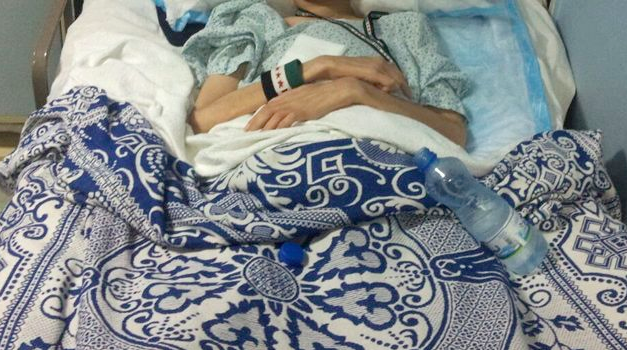‘Take Your Portion’: A Victim Speaks Out About Rape in Syria / The Atlantic

 Alma Abdulrahman is lying gaunt and unable to move anything below her diaphragm in a hospital bed in Amman. Some bedsores have become so deep she’s having surgery tomorrow. Screws hold together her upper vertebrae, and cigarette burns pock her right shoulder. Her voice fades in and out, hoarse from either weakness or morphine.
Alma Abdulrahman is lying gaunt and unable to move anything below her diaphragm in a hospital bed in Amman. Some bedsores have become so deep she’s having surgery tomorrow. Screws hold together her upper vertebrae, and cigarette burns pock her right shoulder. Her voice fades in and out, hoarse from either weakness or morphine.
Six months earlier, she was paralyzed when a regime soldier struck her in the neck with a rifle on a street on the outskirts of Damascus. Now, from a guarded hospital room, she wants to be heard, and what she has to say is deeply disturbing.
Alma Abdulrahman is one of the very few women in the Syrian conflict to speak out about having been raped. While she offered to use her entire name in this story, I’ve used only her first name and a family name because of safety concerns.
She has already received severe punishment, she says, as retribution for her role as a battalion commander in the Free Syrian Army. “I served at a very high rank in the army, where I was responsible over men who had to listen to me,” she says.
Unusual for her forthrightness about the rape itself, Abdulrahman is also the rare Syrian woman who has discussed her role in the FSA, which she joined very early in the revolution. Formerly an accountant, she says she rose to the rank of an FSA battalion commander and was in charge of about 15 men at a time. She says she has killed “many, many” men — at least nine, at her count. With her slim, tall figure, she was sometimes even able to pass as one, she says.
Over the course of a few days in June, Abdulrahman described what she says are the details of her torture via Skype from her hospital bed. It is a series of interviews that almost didn’t happen. Her first, short interview was given to Al-Arabiya on June 6. After this, a person connected to the case told me, a man from the Jordanian government visited her hospital to let the administration know that he was displeased they were treating a “terrorist.” All interviews, including my plans to speak with her, were canceled. Through the cooperation of various medical and social workers in Amman, we were eventually able to connect. While tired, she agreed to speak multiple times through a translator and repeat what she made clear were painful memories.
To read the rest of this story, please click over to The Atlantic.
Leave a Reply